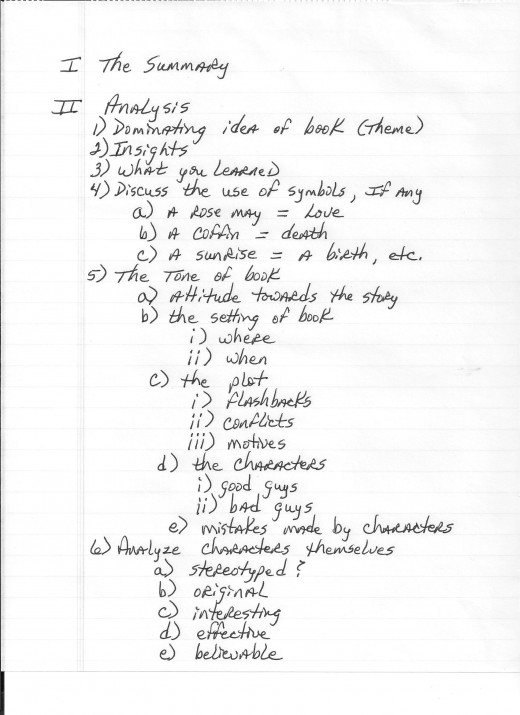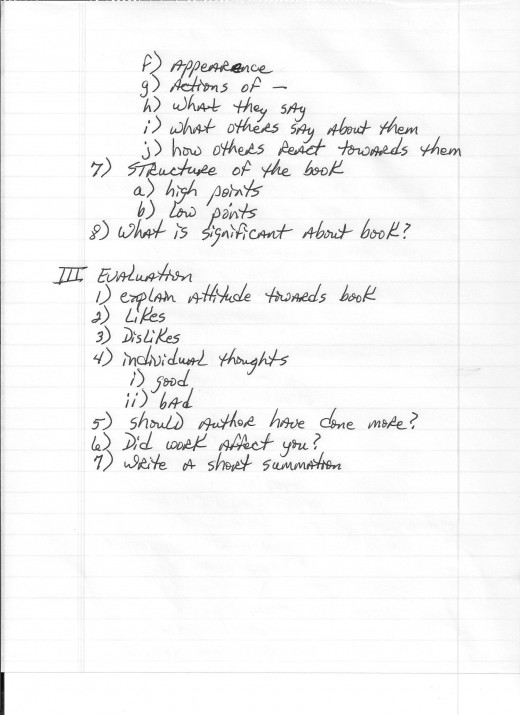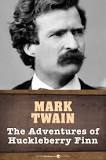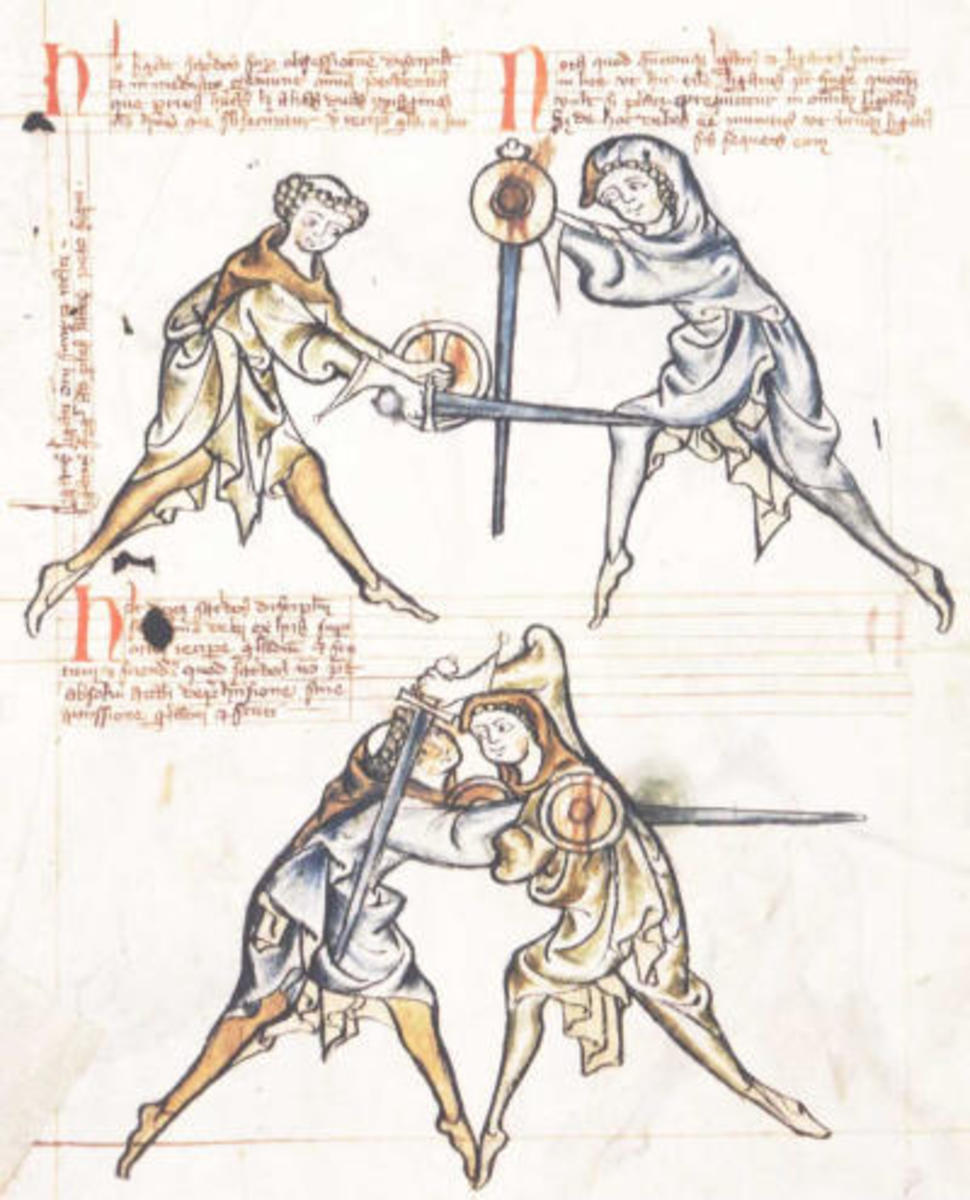Writing a Book Review




Writing
What is the first thing any intelligent student would say if a teacher asks them to do a dreaded book review. Besides, "Oh, crap!" The first thing should be, "Can I pick the book?" But usually its the first comment, right? Well, no one should be intimidated by a book review. Yes, I know, most books a teacher wants you to read you would consider dull, crappy written pieces of literature. Such as: William Shakespeare's, Hamlet. Or, Romeo and Juliet. But, there are some authors from not so long ago who have made a lasting impression on the writing of today. Now, I'm not saying Romeo and Juliet isn't a good read, or that it isn't good writing. But most students wouldn't necessarily pick either for a book review. But . . .there are classics, such as Mark Twain's Huckleberry Finn that make for an excellent book review.
Teachers in my day (NOT going to tell you how long ago it was, no matter how you try to bribe me) usually let you pick a book from a list. And the easiest way for you to pick one is to see what interests you. And it doesn't have to be a book so large you could use it for a doorstop. A lot of them are no more than a couple hundred pages. Simple read for you to get your teeth into.
The very first thing for you to realize is you don't have to be intimidated by doing one. And don't think you are the only one struggling to accomplish this task. Even for a seasoned writer, this can cause great anxiety, depending on what the instructor wants to be included in it. With proper research and an understanding of the book, it doesn't have to give you nightmares or cause an ulcer. All you have to remember is there are three main things to be included in any book review: A short summary of the book; an in-depth analysis of the work (details); and finally, an honest evaluation of the work. Simple. No muss, no fuss.
Lets break down the three element of the book review, to try and get a better picture. OK?
The Summary - OK, let's look at the beginning, shall we? When you think of a summary of a book, what do you think of? It's a short description of the book, that's it. And the best way to write it? Tell your audience (your instructor in this case) what its about. In your own words.
There are a few rules you should use to do this also.The opening paragraph should be concise and to the point. Don't put in too many adjectives describing action, or blood shed, or anything like that. Go straight to it. It should contain no more than the minimal amount of sentences to convey what you know of the story. This section should be no longer than one-fifth of your total assignment. Think of it as a pie. Cut it into five parts, and one part would be the summary. What this does is demonstrate that you have read and followed what was written. The best way to describe this is to think of it as a headline. Short and to the point.
Analysis - This section is where the details come in. The process of analysis is to divide a problem into various parts, so that the whole can be examined more easily. Literary analysis is the way of getting to the heart of any work. This may sound like a bunch of gobbledygook to you, but it's pretty straight forward. And you should include in this four broad areas: (1) Meaning, (2) style, (3) structure, and (4) background and influences. And there is usually overlapping in these areas. And be sure to compare how your analysis, what you found in the book, relates to the story as a whole. Tie it into a bow and deliver it with style to your instructor.
You should analyze, or explain, the meaning of the book. Tell about the dominating idea of the book (the main idea). What did it tell you? Discuss some insights which the book gave you. Discuss the characters in the book and what you got out of them, if anything. What did the characters do? Or say? Or were they individuals in their own right? What were their actions? What did other character say, or do, if anything? Things of this nature.
And Characters, they're either the good guys or bad guys. Are the main characters good or bad? Or are the supporting characters good or bad. Think of it like Batman and the Joker going after it. POW! Just as in a movie. Which was which? Did they interact well for the story line? When you write, you can either deal with many topics or just one main topic of the piece read, but make sure whichever is chosen, the reader understands it as a whole.
Evaluation - And then you come to the good part. The evaluation.This part is no more than a fifth of the total length of the assignment also. Although this part deals with your evaluation of the book, in some ways this is the most important. This is where you demonstrate what you got OUT of it, and what you like or dislike about it. This is where your tell us (instructor, whomever) what you really think of the book. Your likes and dislikes have a definite place if they are combined with unbiased judgments to answer questions that are really important. Such as: How did the book affect you? Did you feel satisfied after reading it? Or happy? Or sad? Or even, in your opinion, did the author leave something out? Could he/she have done more with the characters, or situations? This is the place for your individual observations, thoughts, and reactions. Don't be afraid to put them down in print. Be honest, truthful, and up front. But most importantly, be unbiased, using only what you have read to influence you. Don't use somebody else's bias on the work. Original and honest thoughts should be put down. So, what did you think of the book?
The basic concept of any book review is to make sure you, as the reader, have a full knowledge and understanding of the piece. Don't let the phrase "Book review" scare you or intimidate you. It is simply one of the tools of a good writer. It teaches different writing styles, tones to put in a piece, and even characterizations.
Read a book. Read a lot of books. Tell your friends. Spread the word. How would you tell me about your favorite book? Would you recommend this to your classmate, your brother, your wife, your girlfriend, boyfriend, THE WORLD?
Do a dreaded book review. And as always, Happy Reading.



